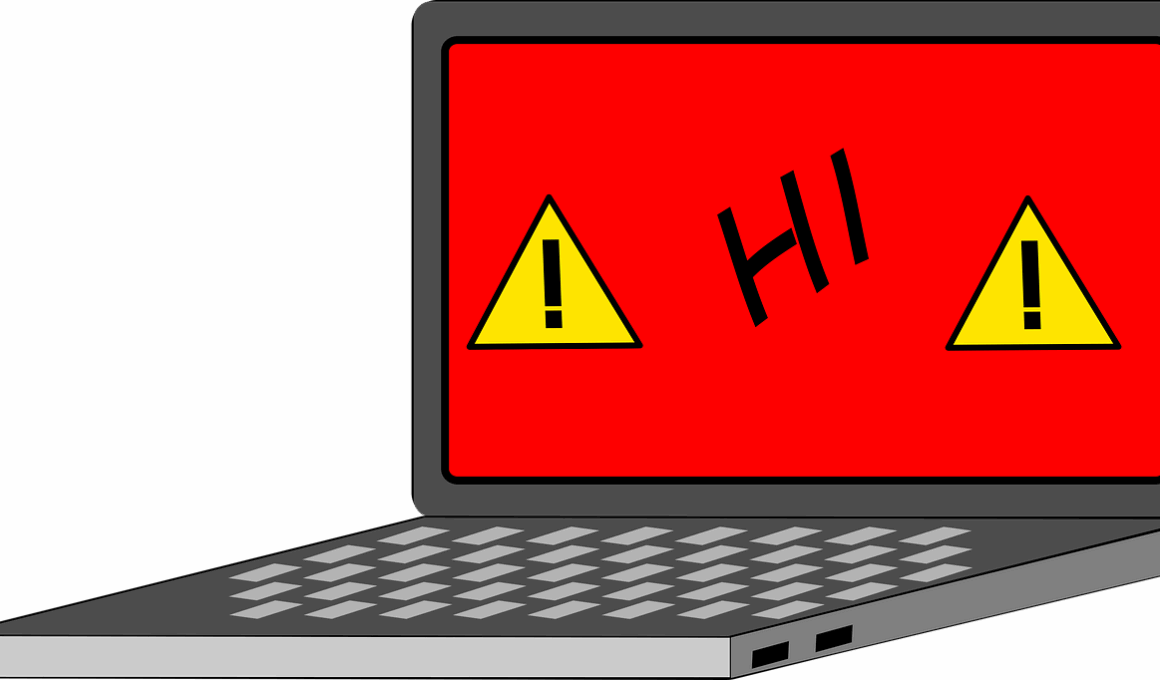Preventing Fraud in Small Businesses: Cost-Saving Strategies
Fraud is a significant threat to small businesses, often leading to substantial financial losses. In many cases, these losses stem from internal and external sources that take advantage of lax security measures or inadequate oversight. Establishing effective fraud prevention strategies is essential for safeguarding assets, reducing costs, and fostering a trustworthy environment. By prioritizing fraud prevention, businesses can enhance operational efficiency while building stronger relationships with customers and vendors. One effective approach is to conduct a comprehensive risk assessment, which helps identify potential fraud scenarios and vulnerabilities. This allows businesses to implement tailored strategies to mitigate risks accordingly. Additionally, educating employees on recognizing fraudulent behavior increases awareness and helps cultivate a proactive culture against fraud. Implementing strong internal controls, such as segregation of duties and regular audits, can also deter fraudulent activities. Furthermore, it is crucial for small businesses to leverage technology, such as data analytics and fraud detection software, to monitor suspicious activities effectively. These tools can provide real-time insights and enhance decision-making processes.
As small businesses adapt to the challenges posed by fraud, establishing a strong fraud policy is vital. A well-structured fraud policy should outline the company’s stance on integrity and ethics, ensuring that all employees understand the importance of such values. This can include measures like maintaining a whistleblower hotline for anonymously reporting misconduct. Furthermore, communicating the consequences of fraudulent activities within the organization acts as a deterrent, encouraging employees to adhere to ethical standards. Regular training sessions on fraud awareness can keep everyone updated and reinforce the message of integrity. Involving employees in fraud prevention efforts not only enhances their engagement but fosters a shared responsibility towards protecting the company’s resources. Another effective strategy involves periodic reviews of financial policies and procedures. Analyzing leading fraud trends can help businesses stay ahead of potential threats. Additionally, cultivating relationships with local law enforcement can provide small businesses with support and guidance on best practices for crime prevention. Ultimately, a comprehensive approach to fraud prevention extends beyond mere protocols, requiring commitment and strategic foresight.
Investing in Technology for Fraud Prevention
In today’s digital landscape, leveraging technology for fraud prevention has become indispensable for small businesses. Adopting appropriate software tools can streamline operations while substantially reducing vulnerabilities. Fraud detection systems utilize advanced algorithms and machine learning to identify patterns and anomalies in transaction data. This proactive approach to monitoring can alert businesses to suspicious activities in real-time, enabling them to take immediate action. Moreover, integrating payment processing systems with fraud prevention tools can enhance transaction security, ensuring that all payment methods are safeguarded against potential threats. Implementing two-factor authentication adds another layer of protection by requiring users to verify their identities through multiple means. Regularly updating software and systems to patch vulnerabilities is critical, as cybercriminals are constantly evolving their tactics. Small businesses should also prioritize data encryption, ensuring that sensitive customer information is protected from unauthorized access. Additionally, investing in employee training on the latest technological advancements enables staff to respond effectively to emerging threats. Strengthening technology infrastructure not only reduces fraud-related costs but also instills confidence among customers, fostering a long-term relationship built on trust.
To further protect against fraud, small businesses should establish robust vendor management processes. Partnering with third-party service providers or suppliers necessitates diligent oversight to ensure they comply with security protocols. This can involve conducting background checks and financial assessments before forging relationships with new vendors. Regular audits of suppliers can help in identifying any inconsistencies or fraudulent activities. Additionally, utilizing contracts with clear terms and conditions can safeguard businesses from potential fraud impacts. When disputes arise, having detailed agreements can provide significant backing in enforcing rights and responsibilities. It is essential to cultivate long-lasting relationships with vendors built on transparency and integrity. Employing a diverse range of suppliers can also mitigate risks associated with over-dependency on a single source. Furthermore, maintaining open lines of communication fosters collaboration and facilitates the sharing of information regarding potential fraud risks. These proactive strategies can help small businesses navigate the complexities of vendor management while minimizing exposure to fraud. A vigilant approach counteracts the threat and fosters a reliable network of partners committed to business success.
Cultivating a Culture of Integrity
Creating a culture of integrity within a small business is vital for effective fraud prevention. A strong ethical foundation encourages employees to adhere to principles that prioritize transparency and accountability. Senior management should lead by example, demonstrating honesty and fairness in all business dealings. Involving employees in developing company values fosters buy-in and strengthens their commitment to upholding these standards. Regular discussions about integrity and ethical decision-making in team meetings can reinforce these values, serving as a reminder of their importance. It is essential to recognize and reward employees who exhibit integrity in their actions, as this will create positive reinforcement throughout the organization. Encouraging open dialogue on ethical dilemmas and facilitating anonymous reporting of concerns empowers employees to voice their opinions and identify potential fraud without fear. Furthermore, conducting periodic assessments of the company’s compliance with ethical standards helps identify any areas for improvement. Engaging third-party ethical consultants can provide valuable insights and recommendations to enhance the company’s integrity framework. Establishing a culture of integrity not only reduces fraud chances but also solidifies a positive reputation among stakeholders, ultimately driving business success.
Monitoring and analyzing employees’ access to sensitive information is another crucial aspect of fraud prevention. Implementing role-based access controls limits exposure to confidential data, ensuring only authorized personnel can access critical information. This reduces the opportunity for theft or misuse of sensitive company and customer data. Additionally, conducting regular audits of access logs can help identify any discrepancies or unauthorized attempts to access restricted areas. This increased vigilance equips managers with insights into potential red flags and facilitates prompt action when necessary. Training employees on the importance of data security and the implications of data breaches reinforces the need for compliance with access protocols. Establishing a culture of accountability ensures all employees understand the significance of safeguarding sensitive information. Furthermore, utilizing audits as a proactive measure can assist in ensuring that controls remain effective and sustainable. Regularly updating these access controls in alignment with evolving business requirements also helps maintain a secure environment. By diligently monitoring access, businesses can mitigate fraud risks while fostering trust among their stakeholders.
Conclusion on Fraud Prevention Strategies
In conclusion, preventing fraud in small businesses is essential for reducing costs and ensuring long-term success. A multifaceted approach that combines technology, employee engagement, and a culture of integrity serves as the foundation for effective fraud prevention. By embracing comprehensive risk assessments and investing in fraud detection tools, businesses increase their ability to protect their assets. Implementing strong vendor management processes and monitoring employee access to sensitive information further fortifies these efforts. Businesses can proactively address potential threats while fostering trust among employees and stakeholders. Ongoing education about the risks associated with fraud is crucial for maintaining knowledge and awareness. At the same time, consistently evaluating and enhancing existing fraud prevention strategies reinforces resilience in the face of evolving challenges. Building a reputable business that prioritizes integrity will, in turn, attract loyal customers and reliable partners. Although challenges persist, focusing on fraud prevention can translate into significant cost savings, making it a worthwhile investment. Ultimately, nurturing a secure operating environment creates the foundation for future growth and success.
Call to Action for Business Owners
Now is the time for small business owners to take decisive steps toward enhancing their fraud prevention measures and reducing costs. By implementing the strategies outlined above, organizations can build a robust defense against fraudulent activities. Start by assessing your current policies and procedures, identifying any vulnerabilities, and putting effective measures in place to mitigate these risks. This is also an excellent opportunity to engage employees in the conversation, fostering a team-oriented approach to combating fraud. Providing training and resources related to fraud awareness can empower staff to identify and report suspicious behavior. Remember, the fight against fraud is not solely a management issue; it requires a collective commitment from everyone in the organization. As you invest in new technologies and processes, ensure that they are used to their full potential for maximum impact. Collaborate with industry peers and share best practices that have proven effective in preventing fraud. By remaining vigilant and proactive, small businesses can create a climate of accountability and transparency, ultimately leading to a healthier bottom line and sustained success.





